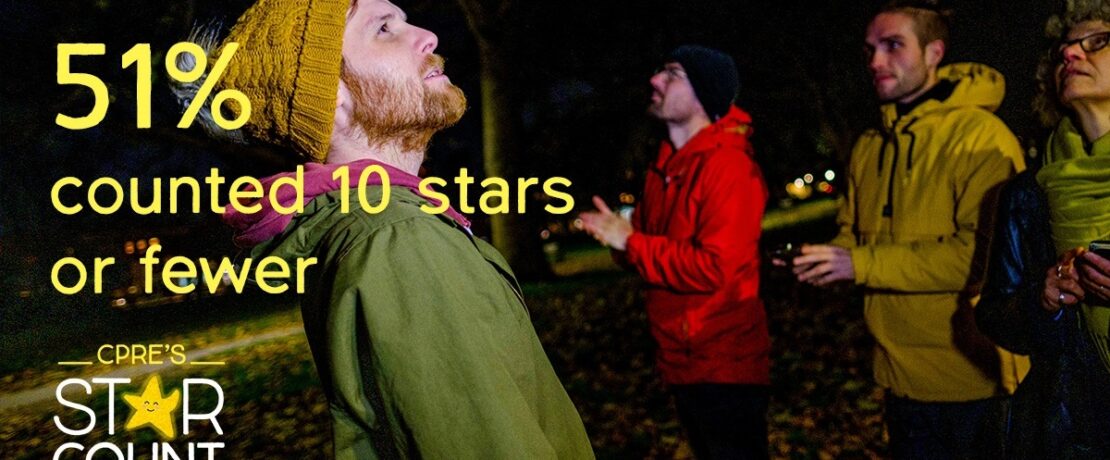Star Count 2023 – the results are in
This February, we invited you to take part in CPRE’s Star Count, a cosmic census to map our view of the night sky. Almost 4000 of you took part across the country – thank you.
But the results suggest that only 5% of people can enjoy the wonder of a truly dark starry sky.
Although the beauty of a starry night sky is one of the joys of the countryside, sadly, most people can’t easily enjoy that sight because of light pollution where they live. Three-quarters of people in the UK have an obscured view of the night sky.
The results show that 51% of people counted ten or fewer stars in the Orion constellation. This indicates severe light pollution, and is a 2.5% increase from last year.
Here in Somerset, 106 people submitted Star Count results. The data was similar to the whole of the UK, with just 4.6% experiencing the darkest skies and able to count more than 30 stars. 37.7% of people who did their Star Count in Somerset saw less than 10 stars.
Why are dark skies important?
Artificial light causes confusion to migrating birds, often with fatal outcomes. It interrupts natural rhythms, including the reproduction, feeding and sleeping patterns of pollinating insects, bats and nocturnal animals. In humans, exposure to light at night interrupts sleep and can disrupt the body’s production of melatonin, a brain hormone best known for its daily role in resetting the body’s biological clock.
It is clear that we need some action NOW!
Ask your MP to stand up for starry skies
Local councils must take a strong approach to manage light pollution. Local planning and street lighting policies must be strengthened to protect dark skies. CPRE is also calling for minimum standards to be introduced nationally for the management of external lighting to cut light pollution.









